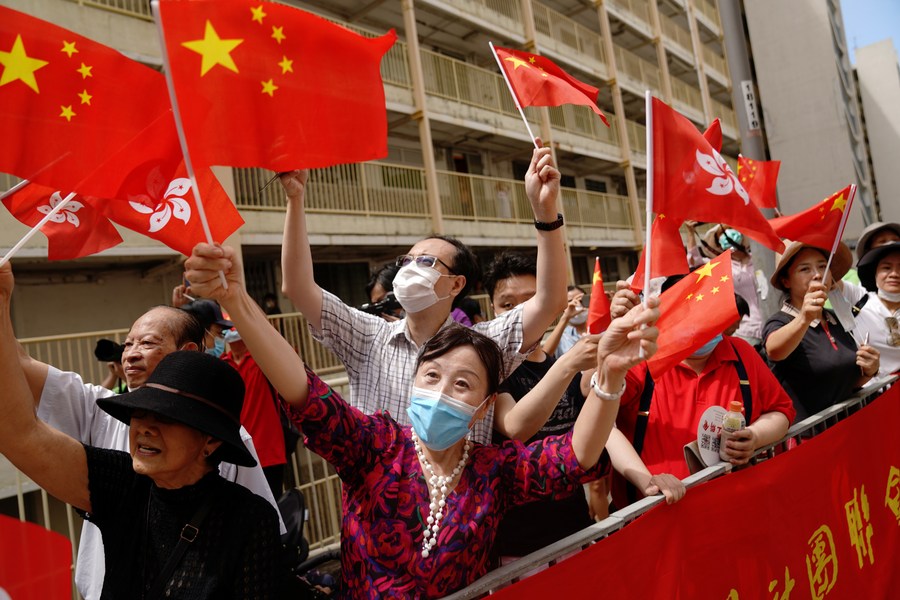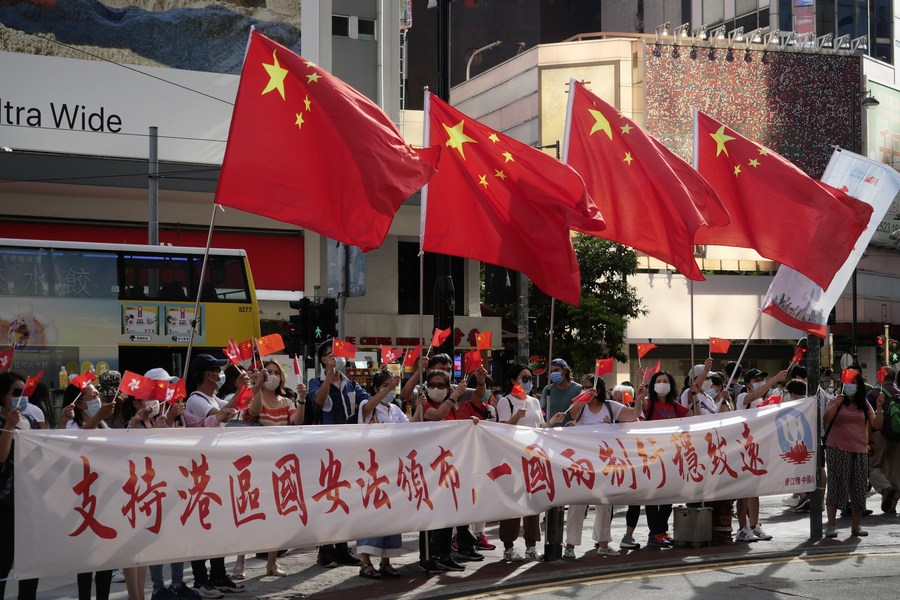
People watch a parade to celebrate the 23rd anniversary of Hong Kong's return to the motherland in Hong Kong, south China, July 1, 2020. (Xinhua/Wang Shen)
BEIJING, July 3 (Xinhua) -- Some U.S. and Western politicians have recently made false accusations against the Law of the People's Republic of China on Safeguarding National Security in the Hong Kong Special Administrative Region (HKSAR). Here are one of the rumors they spread, and the facts. More lies will be debunked in the following days.
Rumor: The national security law for the HKSAR would undermine the human rights and basic freedoms of Hong Kong residents and violate the International Covenant on Civil and Political Rights.

Hong Kong citizens celebrate the passage of the Law of the People's Republic of China on Safeguarding National Security in the Hong Kong Special Administrative Region (HKSAR) in Causeway Bay of south China's Hong Kong, June 30, 2020. (Xinhua/Wang Shen)
Facts:
-- The national security law for the HKSAR clearly stipulates that human rights shall be respected and protected in safeguarding national security in the HKSAR. The rights and freedoms, including the freedoms of speech, of the press, of publication, of association, of assembly, of procession and of demonstration, which the residents of the HKSAR enjoy under the Basic Law of the HKSAR and the provisions of the International Covenant on Civil and Political Rights and the International Covenant on Economic, Social and Cultural Rights as applied to Hong Kong, shall be protected in accordance with the law.
-- The national security law for the HKSAR targets only four categories of crimes, namely secession, subversion, terrorist activities, and collusion with a foreign country or external elements to endanger national security. It punishes the very few criminals who seriously endanger national security, protects the vast majority of Hong Kong residents who abide by laws, and safeguards the safety of the vast majority of Hong Kong residents and the various rights and freedoms they enjoy in accordance with the law.
-- Constitutions in more than 100 countries all stipulate that the exercise of fundamental rights and freedoms shall not endanger national security. According to the International Covenant on Civil and Political Rights, the right to have a belief, the right to freedom of expression, the right of peaceful assembly, and the right to a public hearing may be subject to necessary restrictions in the interests of national security and public order. The European Convention on Human Rights has similar provisions. ■



